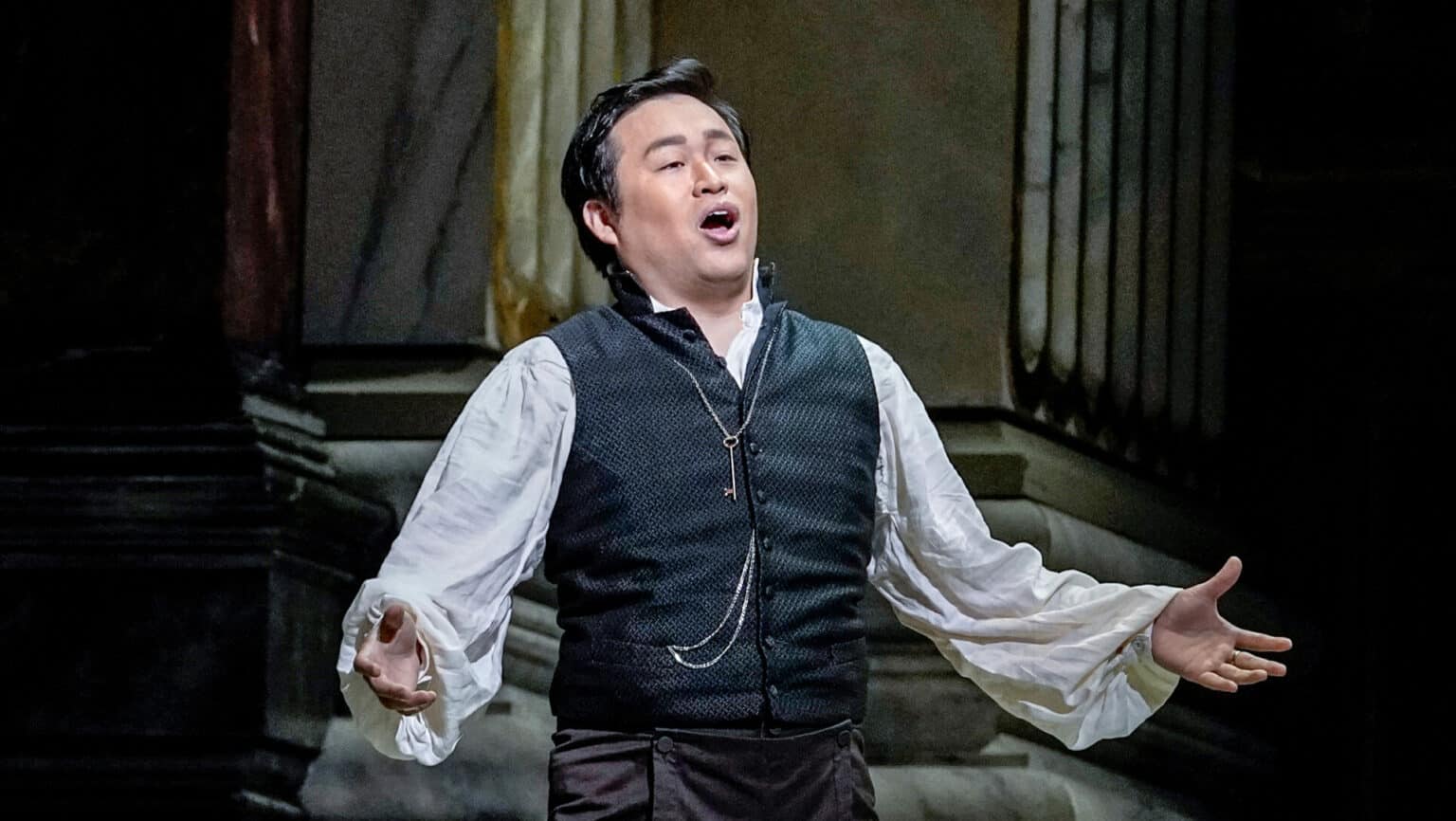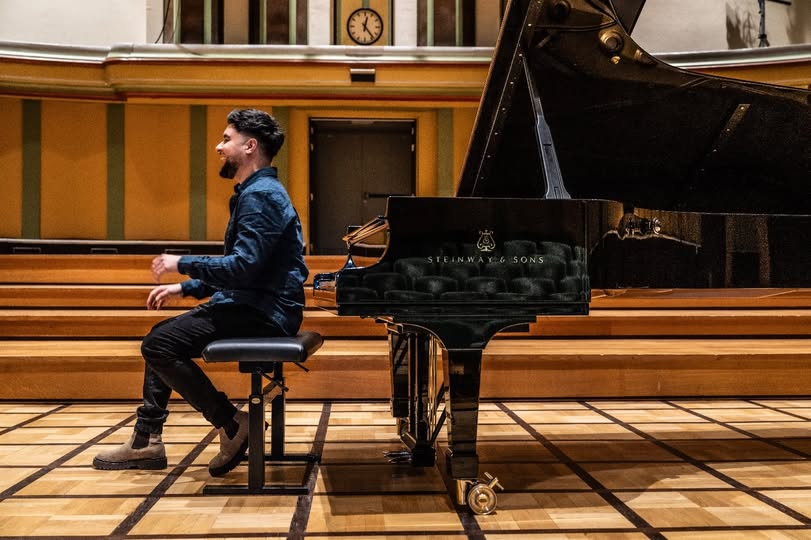How London ceased to be a music capital
NewsFrom my monthly essay in The Critic, out today:
It is a sad truth, widely acknowledged, that London is no longer a music capital. World orchestras that passed through once or twice a year no longer stop over. Headline artists save their signature concerts for Paris and Berlin. New music has dried up. There hasn’t been a premiere of world consequence since before Covid. London is falling off the music map.
Various reasons and excuses are attached to this decline, among them Brexit, Covid, the Ukraine war, economic woes and a government that is plundering funds from the capital and spreading it around the regions, going out of its way to penalise London orchestras while smiling upon pointless little minority start-ups that are barely above kindergarten level.
These are all contributory causes but the cumulation of factors does not begin to describe the loss of national purpose and fundamental incompetence that has relegated music in London to an all-time low….
Read on here.






“a government that is plundering funds from the capital and spreading it around the regions, going out of its way to penalise London orchestras while smiling upon pointless little minority start-ups that are barely above kindergarten level”……….so if these London orchestras are so good and world class they should be able to generate sufficient income from concerts, recordings, broadcasts etc. Why the hell should Jo Public have to subsidise them, and don’t get me started on the subsidies for Opera, a minority interest that the vast majority of people have never had any interest in, do not have an interest in and never will have an interest in. I think it is called the “law of supply and demand”.
“and don’t get me started on the subsidies for Opera”
But you did in fact get started and continued your usual rant anyway.
It’s the only reason you come here. Time to find a new message?
I see you have failed to address the question I posed which was “why should Jo Public have to subsidise something that 95% of them have no interest in?”
It comes down to deciding whether minority interests matter, whether they have the potential to increase in popularity (I think they do, given the chance), and whether numbers are a reliable indication of value in the first place.
But you know perfectly well what the arguments are, don’t you? I see little point in arguing with someone who sounds like a broken record.
Tedious.
You still haven’t addressed the question as to why Jo Public should subsidise a minority interest (mainly for the middle and upper middle classes). If minority interests deserve subsidising I look forward to a massive investment in the development of Dwile Flonking that old East Anglian cultural activity that resonates with a small but vociferous minority.
A suggestion. Instead of coming here from time to time and sneering at opera subsidy, why not do what Mr L has done and set up your own site where you can campaign for subsidy for whatever turns you on?
Interest in classical music and opera might be small compared with many other activities, but it has been solid for some considerable time and extends to countries in the Far East. I would not consider this negligible. It has also paved the way for many other musical genres enjoyed by people from all walks of life.
I am not familiar with Dwile Flonking but if you think it is deserving of subsidy, why not go for it? You don’t say which social classes enjoy this worthwhile activity. I assume they must be more deserving than the middle and upper classes, even though they provide most of the tax revenue. However, as far as I can see, Dwile Flonking does not require much in the way of facilities, training or infrastructure, which may explain why ACE for all its faults has shown little interest in it. Another reason might be the fact you would probably be hard pressed to fill the Royal Albert Hall, Suntory Hall, Opera Bastille or local working mens club.
Good luck with your campaign, nevertheless.
You’ll get downvoted if you ever mention the law of supply and demand here. In classical music it means “I supply music so I demand you pay me.”
OK then, I’ll gladly forego subsidies, but absolutely NO cherry picking whatsoever.
That means I don’t have to subsidise other people’s pleasures like giving themselves type 2 diabetes due to lifestyle choices, or wreaking havoc outside their football clubs and getting the police involved. But that is just for starters, I could go on.
Happy to pay the top whack for my concert tickets but I’ll be better off overall. Is it a deal?
‘if these London orchestras are so good and world class they should be able to generate sufficient income from concerts, recordings, broadcasts etc’
Why? The Berlin Philharmonic doesn’t.
No top class orchestra or opera company can or does support itself without subsidy of some kind. Those that once could haven’t been able to since the decline of the record industry with the birth of the internet.
The great studio opera recordings of the 50s and 60s took two decades or more of major sales to cover their costs and start to generate a profit.
There is no longer a mass market for recordings now almost everything is streamed through subscriptionVery little is returned to the orchestras and performers. Which performers today can sustain mass sales sufficient to generate an income?
Thriving arts and culture is the sign of a civilised society, enriching its citizens as well as ancillary industries such as technical production, logisitics, hospitality, publishing, travel and the like. That was the thinking behind the creation of the Arts Council after the war.
The entertainment industry contributed £111bn to the UK economy in 2018.
Only in the UK is the arts considered (erroneously) to be elistist and for the wealthy who can afford it. Depriving it of functioning subsidy ensures it becomes so.
A government that is plundering funds for their chums to have luxury tachts and fleece the taxpayers would be more accurate.
So it is ok to subsidise a bunch of start ups supplying or not as the case may be PPE?
Get a grip on reality.
Again a perfect example of why “market logic”, Thatcherism, pay to play etc. is so antithetical to the fine arts. Pure philistinism which today’s right is so full of
It could be lamented that foreign orchestras are no longer really present at the Proms (which might also be saving some jet fuel) – but when the homegrown talent is so good – it should be a source of pride. What Halle delivered under Sir Mark Elder is worthy of any festival.
Bravo, Norman! Outstanding article. This is a critical & timely issue right now, not just in London but in many other cities/countries. You address the situation in London with a sense of understanding that no one else could even come close to. So interesting. Thank you.
Don’t sneer too much.
These “pointless little minority start-ups that are barely above kindergarten level” offer an opportunity for young musicians to play in an orchestra and get real experience. The great don’t just fall from heaven. They start somewhere.
Also bringing live performances to the sticks encourages audience development. Gives people a chance to hear an orchestra even when they cannot go into the capital.
I am not saying the great should be defunded, just reminding that the small play a real role. We need to protect both.
Change some names and places, and the same thing has happened at Lincoln Center in New York. Deborah Borda, much praised in these pages, allowed the construction of a hall that was not primarily suited to her organization, the New York Philharmonic, and act hidden under mountains of hype.
. Now Mostly Mozart is gone and Peter Gelb has jumped on the bandwagon with the appallingly woke repertoire for the coming season
Maybe from your vantage point you have knowledge and experience I don’t. But from where I sit, London is THE music capital of the world. You have at least six outstanding, world-class orchestras. The world’s greatest classical music festival. So many classical publishers are based there, like Boosey & Hawkes. And so many fine record companies are UK based: Chandos, Hyperion, Dutton to name just three. The Three Choirs Festival seems to be going strong. Looks good to me!
The Proms are living on past glories. This year is a new low.
Is it ? So far. just dipping in, I have heard a fine Bruch G minor Concerto, an equally fine Rach F sharp minor concerto, a compelling Beethoven Choral and also Tchaik 6 , and so the list goes on.And I am not even a BBC lover – quite the reverse in fact
Y’know Norman, amongst so much of the tabloid, and sensationalist fluff you often write, with a ridiculous amount of bias and inaccuracy, you occasionally come with a piece that is truly essential, relevant and revelatory in reading, full of unabashed truth, morality and brilliance. This article is why I still follow Slipped Disc.
Bravo Norman – an exemplary article. More of this please!
You’re onto something, Norm! Chamber orchestras in small venues in large cities may indeed be the wave of classical music’s future! Large orchestras are becoming more and more economically unsustainable. Audiences will crave smallness, closeness, intimacy. Small will definitely be better and more artistically satisfying for both musicians and audiences!
The same dacapo of the same aria the umpteenth time…Even a casual look at the programs,artists, and orchestras reveals the absurdity of your claim….just because you don´t play a role in London´s musical life it isn´t one percent less significant
Things might be different if London had a state of the art concert hall but needless to say, as soon as it was mentioned you moaned about it.
To be fair to NL, I believe he did give reasons. From memory, I think that location was the main one (not that there were many options to choose from).
IMO, the plans were too ambitious, and anything other than a “safe” shoebox shape would be reckless. London should not risk another failed design.
Money has already been spent unwisely on RFH and Barbican improvements. This has probably ruled out further expense for some considerable time.
You have a point though. In the UK, everything is a “white elephant”, a “vanity project”, or both.
Might be losing my memory, but didn’t Mr Lebrecht spend most of 2021/2 saying that international touring for orchestras was terrible for the planet and orchestras should stay local and concentrate on building home audiences?
Didn’t realise he still wants international orchestras coming to London were excluded from this. Silly me.
The irony is that fans of “woke” culture and “woke” politics dominate a lot of the artistic-creative-political scene in cities like London, so changes in cultural trends of the distant past may be seen as both good and bad.
Per capita, Berlin devotes 15 time more public funding to culture than does England. But we have footballers on £30 million a year.
A football stadium seats up to 90,000.
International market for players and economies of scale.
Having read the full article.
A brief (?) bit of background.
In 1965 my father took me to the Theatre Royal, Newcastle upon Tyne on a Saturday afternoon to see Don Giovanni. He bought tickets for ‘The Gods’, wooden bench high enough to cause vertigo. As Don Giovanni sunk into Hades in a wall of flame I was hooked.
Nowadays living in Cumbria to see opera involves late night/early hours journeys home or overnight stays. London in reality necessitates 2 night stop overs. So thank goodness for streaming, not as good as live but accessible.
I wanted to see an exhibition at the British Museum it proved more practical to visit friends on the south coast for a week and go up to London for the day. Ugh! For the first time ever I used Waterloo Station, then walked to the BM passing the South Bank. What an insult to the senses. The whole area is filthy, the exterior of the SB is horrendous, well acknowledged. On leaving the BM we wandered around Covent Garden and the Royal Opera House, yes we had an enjoyable meal, but in general the area is not welcoming to visitors. If this is the impression tourists get when visiting what is supposed to be the cultural high of London then are you surprised it is fading.
Perhaps more money to the regions and regular tours by the top companies is the way to go. Younger people will not travel to London to see opera/orchestras/ballet if not exposed to top quality on their doorstep.
‘we wandered around Covent Garden and the Royal Opera House, yes we had an enjoyable meal, but in general the area is not welcoming to visitors.’
Well they haven’t got the message because it’s always full of visitors.
So far as more tours are concerned, speak to ACE about recent cuts or look into why the ROH has not had much success in Manchester.
“Theatre Royal, Newcastle upon Tyne”
Unhappy memories. Nice enough building but by far the most uncomfortable auditorium I have ever been in. And I’m not particularly tall.
The comments here just go to underline how the vast majority of the British public has no idea whatsoever of how much better most other European countries function, in the world of music as in just about everything else.
The root of the problem is the disastrous British education system and the fact that most of the population speak no other languages and so have no other source of information than the corrupt and biased British press and TV.
French is my first language but I disagree entirely. Such simplistic nonsense.
‘as in just about everything else.’
Really?
I am likely from a different generation than majority of those who post here but as a professional musician, I have never perceived London as THE musical capital, maybe one of along with Vienna, Munich, Berlin, NYC. But over the last 19 years I’ve played in 3 major orchestras, one in Switzerland, one in Germany and now in the US. All of the ensembles traditionally tour and yet I’ve never even been to London while I know Vienna, Paris, Milano, Munich, Berlin, Tokyo, Shanghai, Taipei etc by the back of my hand. Maybe it’s matter of scheduling and luck but I’d say 19 years is damn long time to wait to visit the musical capital of the world.
Lebrecht
Mr Lebrecht has yet again cast doom and gloom over the demise of classical music in London. Far be it from me, a humble retired violinist to disagree with a journalist of his distinction. However, l feel he misses the point, as so often non players do. They imagine they have the inside track, lunch with a famous conductor, drinks with the world’s finest violinist. Tasty snippets of gossip to pass on to a readership hungry for information. What he does not understand is that orchestra’s, especially in London, have been under threat from the day they were founded. These orchestras adapt, day by day, week in and out, to threats to their existence and survive by the tenacity of the players and their will to keep their own orchestra going. It takes years, a great deal of practice and a huge amount of luck to gain a position in a London orchestra. Once a member, the will of the player to protect his or her colleagues and the orchestra they belong to is paramount. Giving up fees, accepting reduced fees and working way beyond the hours any normal person would consider reasonable. Managers come and go, good and bad, journalists rubbish London orchestras, not realising that individual players often move between one London orchestra to another. Every player in any of the London orchestras has had a journey of struggle to gain his or her place in it. They will not give in, nor let their orchestra go under without a fight. Mr Lebrecht, you may consider yourself an insider, but you are not. You have not stood up in possibly numerous auditions, shaking with fear, nerves shot to pieces, waiting to perform in front of your peers. And then if successful, spend years on trial, hoping to be offered a position. You have predicted the demise of more than one London orchestra over the last few decades, they are all still here. Your negative reporting, good journalism no doubt, does nothing to forward the individual player and their hard work, in not only performing, but keeping their orchestra afloat. Long may it last.
Once again, NL does his best to deny London’s place in the cultural firmament. Just compare its musical activities with almost any other major city at a time of extreme economic pressure everywhere. True, this is a transitional period for all orchestras but London is as well-placed as any to prosper. Of course, for NL, London does not have the Berlin Phil, so will always be inferior.
Moribond UK: The UK has gone downhill under new Labour and things got even worse under the Tory regime which has funnelled off billions to the private sector in every domain from the NHS to education. Under Starmer, things will change but not much. The changes will not affect the arts.
Creation: From a purely musical point, London’s programmers are incompetent and boring as muck. The Proms being the worst. How many Mozart, Beethoven or Elgar works can one hear ad nauseam?
Creativity: How many woke calls for new works can a city tolerate? How many commercial, sweet, conservatives new works – the product of horrendous music courses – can we suffer?
The Royal Opera House: great music although the era of Callas, Gobbi and Pavarotti is long gone. Most productions are utterly horrendous. Stop these incompetent narcissists from ruining great works!
A tacky, extortionate, money-laundering city: London is a place for chains and crap beer; a haven for artistically-illiterate billionaires in their tacky supercars; a city of cheap labour (see how much you need to earn to buy a house!), and a capital for money laundering so it seems!
https://www.economist.com/britain/why-is-london-so-attractive-to-tainted-foreign-money/21809124
Only a few can afford to live in London and few are willing to travel to the capital to earn miserable salaries.
London’s problems will be solved when the UK is put back in shape. That might take decades to happen.
“Only a few can afford to live in London and few are willing to travel to the capital to earn miserable salaries.”
So why are rents increasing?
“crap beer”
The range of beers available has never been wider. Sounds familiar though. Which part of the North are you from?
And opera productions? Hardly confined to London, or even the UK.
Oh dear! Really got out of bed on the wrong side this Monday morning, didn’t you?